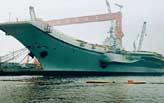Society
Beijing, Shanghai have highest GDP quality
Updated: 2011-07-30 08:16
By Cheng Yingqi (China Daily)
BEIJING - The Chinese Academy of Sciences published the country's first quality assessment system for GDP on Friday.
The assessment system rated the 2010 GDP for 31 provinces by their contribution to local economic growth, social development, environmental quality, people's living standards and government management.
After rating the five criteria, the researchers calculated a final score for each province's GDP, with Beijing scoring the highest and the Ningxia Hui autonomous region the lowest.
"Traditionally there are two interpretations of GDP. One takes GDP growth as the primary measure of political achievement and the other completely ignores it," said academician Niu Wenyuan, who led the project.
"As a result, we developed this evaluation system to help people understand GDP scientifically."
In the report, Beijing received a high appraisal for the GDP used on its environmental protection and treatment of pollution. Shanghai got full marks for living standards, which was 20 times that of Yunnan province.
The researchers said they based the scores on data from the China Statistical Yearbook 2010, and counted the contribution of GDP on each criterion.
For example, when counting one province's score on social development, the researchers considered the urbanization rate, unemployment and the income gap between town and country.
Beijing, Tianjin, Hainan and Chongqing saw sharper rises in their GDP quality ranking than in the size of the GDP in the same year.
"The provinces with a larger GDP base do not necessarily use their GDP better," Niu said. "Of course GDP has its significance, but it includes all the wealth people created, even those whose businesses ended disastrously. So it's important we evaluate its contribution to the improvement of people's lives."
Economists around the world have been revising the measurement of GDP since the 1970s, adding factors such as the resources consumed to produce growth.
However, Niu said this method was the first to use social development and government management levels as reference points.
Niu said from now on the Chinese Academy of Sciences would score every province's GDP quality each year to enable local government officials to assess their work.
Wu Haiying, deputy mayor of Tangshan, Hebei province, said the assessment system would help government officials achieve the goal of scientific development.
"After the earthquake struck the city in 1976, we experienced a decade of reconstruction," Wu said. "Now pursuing more scientific growth is essential for us, so I strongly approve of the GDP quality system."
E-paper

Double vision
Prosperous Hangzhou banks on creative energies to bridge traditional and modern sectors
Minding matters
A touch of glass
No longer going by the book
Specials

Carrier set for maiden voyage
China is refitting an obsolete aircraft carrier bought from Ukraine for research and training purposes.

Pulling heart strings
The 5,000-year-old guqin holds a special place for both european and Chinese music lovers

Fit to a tea
Sixth-generation member of tea family brews up new ideas to modernize a time-honored business
